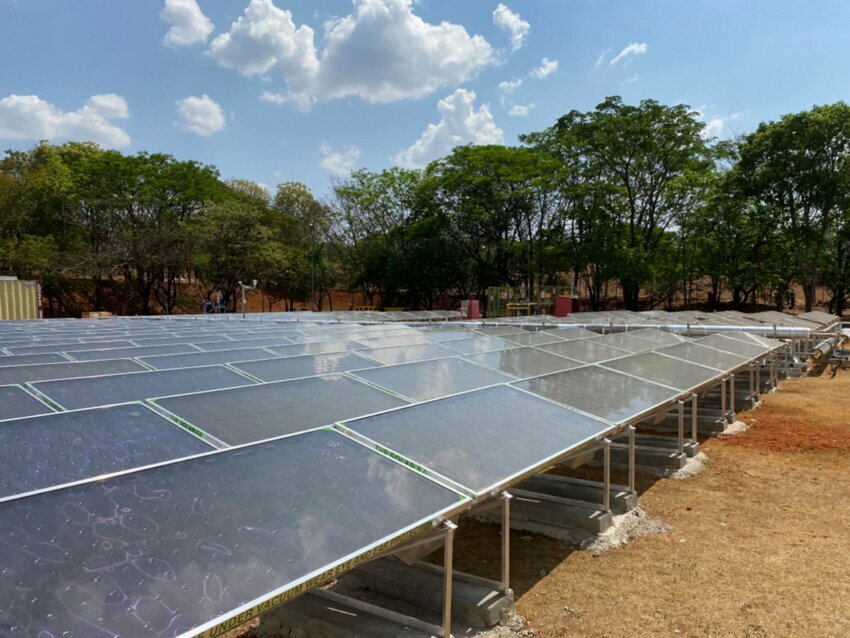 (Credit: PepsiCo)
(Credit: PepsiCo)PepsiCo is implementing a solar thermal plant at one of its snack facilities in Brazil to heat water for its operations that will cut energy costs and emissions.
With this technology, PepsiCo says it will significantly reduce natural gas consumption at the site in Sete Lagoas and cut greenhouse gas emissions by nearly 280 tons. The initial production of the system shows the plant generated nearly 4 kilowatt hours a day of thermal energy during the summer, producing hot water between 140 degrees Fahrenheit and 167 degrees Fahrenheit, which the company says hit its energy targets.
Solar thermal is carbon free and a cheaper alternative to energy produced by fuels. It is estimated using solar thermal can save businesses 50% to 80% on heating water. It can also be used for HVAC systems.
The PepsiCo project is made up of high-vacuum solar thermal flat panels, which run automatically without the need for supervision or high maintenance. The heated water is used for a variety of processes at the factory, which makes production more efficient.
For example, the company says the energy provided from the solar thermal plant can help cook the corn used in its snack production, and with the water heated that way, the facility uses less flame time to reach the temperature needed for its operations.
The plant is part of a partnership between PepsiCo, which has been involved in other solar projects, and TVP Solar, which specializes in solar thermal technology. The Swiss company designs, develops and manufactures the solar thermal collectors.
Bruno Guerreiro, sustainability manager for PepsiCo Brazil, says the solar thermal platform is scalable and should be implemented at other PepsiCo facilities in Brazil in the coming years, with even larger solar capacities.
The project is part of PepsiCo’s goal of reducing carbon emissions by 40% through 2030 and being net zero by 2040. The company also launched PepsiCo Positive, or pep+, in 2021 as a way to add sustainable practices to its entire operations.